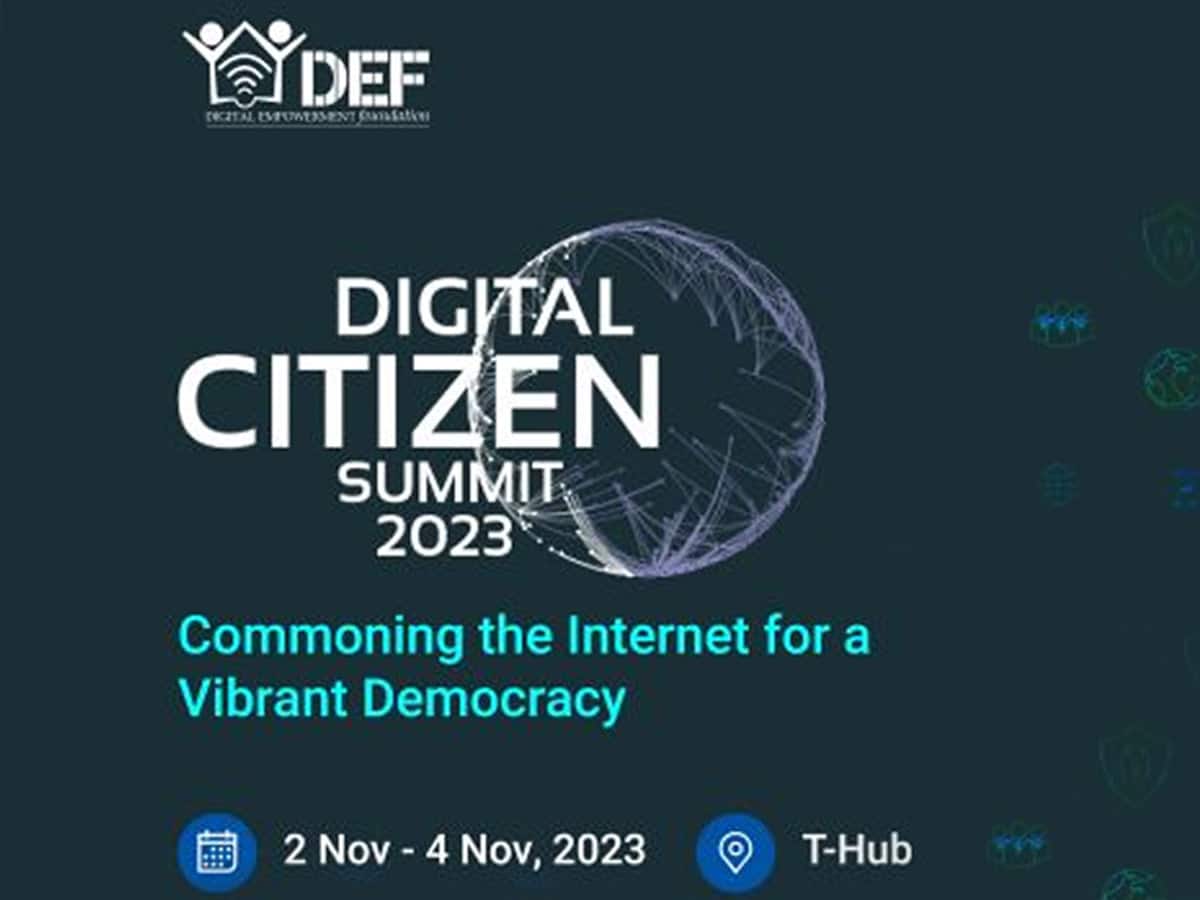
By Rushda Babukhan
The Digital Citizen Summit’s first day featured an enlightening discussion titled ‘Access to Rights and Rights to Access,’ held on 2 November. Organized by the Digital Empowerment Foundation and the Centre for Development Policy and Practice this event marked the summit’s commencement, setting the stage for subsequent activities over the next two days.
The day began with academic paper presentations, followed by a comprehensive discussion involving local and global experts in technology, public policy, and development. Moderated by Osama Manzar, the head of the Digital Empowerment Foundation, the panel included figures like Ayesha Rubina, Ashhar Farhan, and Saeed Mirza. Professors from various universities were also in attendance.
The discourse shed light on the advantages and disadvantages of technological advancements in India and worldwide. Participants deliberated on the evolving role of digital technology, which has transitioned from being optional and alternative to becoming an indispensable necessity over the past two decades.
The discussion underscored the integration of digital access into various facets of life, spanning from policy implementation to fundamental rights. While technology has connected some, it has distanced others, revealing both its significant benefits and vulnerabilities. Striking a balance between utilization and avoidance was deemed crucial to maximizing positives and mitigating negatives.
The panel drew attention to the worrisome shift in the reliability of information, the prevalence of online hatred, and the alarming instances of financial breaches. They underscored that both connected and disconnected segments of society are experiencing dissatisfaction. Renowned director and scriptwriter, Saeed Akhtar Mirza, pointed out that the increasing isolation driven by technology is a recurring concern, significantly impacting human interactions and community engagement. The constraints on discussing sensitive topics due to online censorship and the gradual erosion of the sense of communal belonging were emphasized as distressing societal consequences. He expressed the view that technology is transforming individuals into robots, where every thought is dictated by external influences, depriving people of opportunities to gather, speak, and even think independently.
Moreover, the diminishing robustness of wired networks contrasted with the rapid rise of wireless connections, partially attributed to the push for 5G technology, was a subject of discussion. The panelists emphasized the diminishing concept of the ‘commons’ in the digital age and the relentless promotion of an individual-centric society, further isolating individuals from a collective identity. This situation has reached a point where families and communities are becoming less relevant while international considerations are gaining importance, causing local aspects to fade and global elements to emerge. Establishing meaningful connections is crucial for survival, yet it is becoming increasingly challenging to nurture successive generations. Contrary to expectations, the escalating use of technology is bringing about more challenges. Studies indicate a rise in the number of cases involving children with special needs. Therefore, there is a call for regulating mobile usage, and children must be educated to differentiate between fictional shows and cartoons and real-life situations.
Technology is the medium through which the population of ‘global citizens’ are increasing. The absence of an online presence is equating to a complete lack of presence. While recognizing the positive transformations brought about by technology is crucial, there is a pressing need to address the associated threats, particularly regarding the safety of online spaces for girls in India. The emphasis was placed on individuals taking collective responsibility for leveraging technology for the common good.
Concerns were raised about the collaboration between politicians, corporations, and the media in shaping narratives. The participants expressed that while posing questions is essential for driving development, there is a lack of scrutiny directed towards the nature of these questions. Technology, viewed as formless and uncompassionate, has positioned humans in a subservient position. The upcoming challenge resides in understanding and imparting how technology should be utilized, as the ‘digital’ evolution started with technology, transitioned into a medium, and has now evolved into an ‘oxygen’ source that is being contaminated, inhaled, and causing harm.
The discussion was concluded by Dr Ashhar Farhan, who acknowledged the formidable influence of market forces and technology in shaping today’s world and the transformative nature of technology from a mere tool to a fundamental societal necessity. The discussion illuminated the growing complexities of the digital era, calling for a collective and conscientious approach to navigate these evolving landscapes while also raising pertinent questions about the role and responsibility of individuals in this rapidly changing technological ecosystem. The black-box nature of technology makes it unpredictable and any issues it could have must be fixed at the design level. Everyone took home some food for thought.
Technology has the potential to be destroying or liberating and the question lies in what we as stakeholders can do for it.
Rushda Babukhan has completed her Bachelor of Engineering in Computer Science from Muffakham Jah College of Engineering and Technology. She is currently working as a research intern at Centre for Development Policy and Practice.
